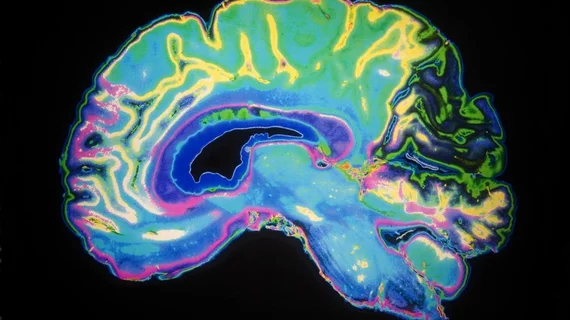Radiologists should be aware of amyloid-related imaging abnormalities for patients taking Alzheimer's drug
Safety information for patients taking a drug meant to treat Alzheimer’s has been updated to include the addition of two MRI scans during the first year of treatment.
Biogen announced the U.S. Food and Drug Administration’s update to their label in a release on April 29. The safety update pertains to Biogen’s Alzheimer’s drug, aducanumab (Aduhelm). With the most recent addition of the two MRIs, patients seeking treatment using the drug are now recommended to receive a total of five scans—four during the first year of treatment and one which should be completed a year before initiating treatment to confirm the presence of amyloid beta pathology.
In a release addressing the label changes, the Biogen statement reads:
Informed by insights from the company’s ongoing pharmacovigilance, a group of medical experts and the updated Appropriate Use Guidelines, certain label changes aim to further help doctors in identifying and managing patients, and aid in the earlier detection and management of amyloid-related imaging abnormalities (ARIA), an adverse event observed in clinical trials and in real world use of ADUHELM. These updates provide more precise guidance that can help physicians and patients make informed treatment decisions.”
On imaging, ARIA might show up as swelling or small spots of bleeding on the surface of the brain, according to the statement. Although ARIA is listed as a possible side effect and does not usually cause symptoms, in rare cases patients can experience serious adverse events, such as seizures. In these cases, Biogen recommends that providers temporarily discontinue treatment depending on symptom severity and resolution.
The two additional MRIs are recommended to detect the presence of ARIA earlier, so that appropriate actions can be taken to manage the findings.
“ADUHELM is the first in a new class of Alzheimer’s disease therapies, and we are committed to continuing to inform physicians and patients about how to optimize treatment strategies in real-world clinical practice,” Maha Radhakrishnan, MD, Chief Medical Officer at Biogen, said in a statement. “We believe the labeling updates further clarify how to appropriately manage patients treated with ADUHELM, with the goal of maximizing potential clinical benefits and mitigating adverse event risks.”
To view the full news release, visit Biogen’s website, and for full prescribing information for ADUHELM, click here.
Related Alzheimer's articles:
New advanced PET imaging reveals root of cognitive decline in patients with Alzheimer's
CMS coverage decision for Alzheimer's drug, related PET scans sparks concern in imaging community
Memory complaints associated with structural brain abnormalities and increased dementia risk
Advanced MRI shows potential for assessing asymptomatic patients at risk for Alzheimer’s

